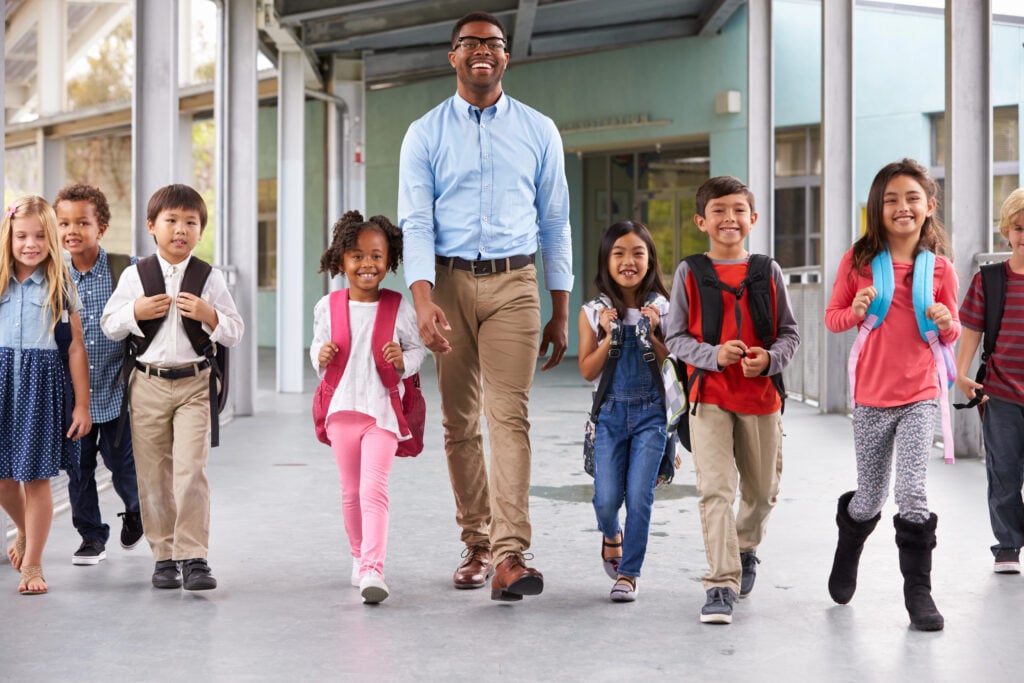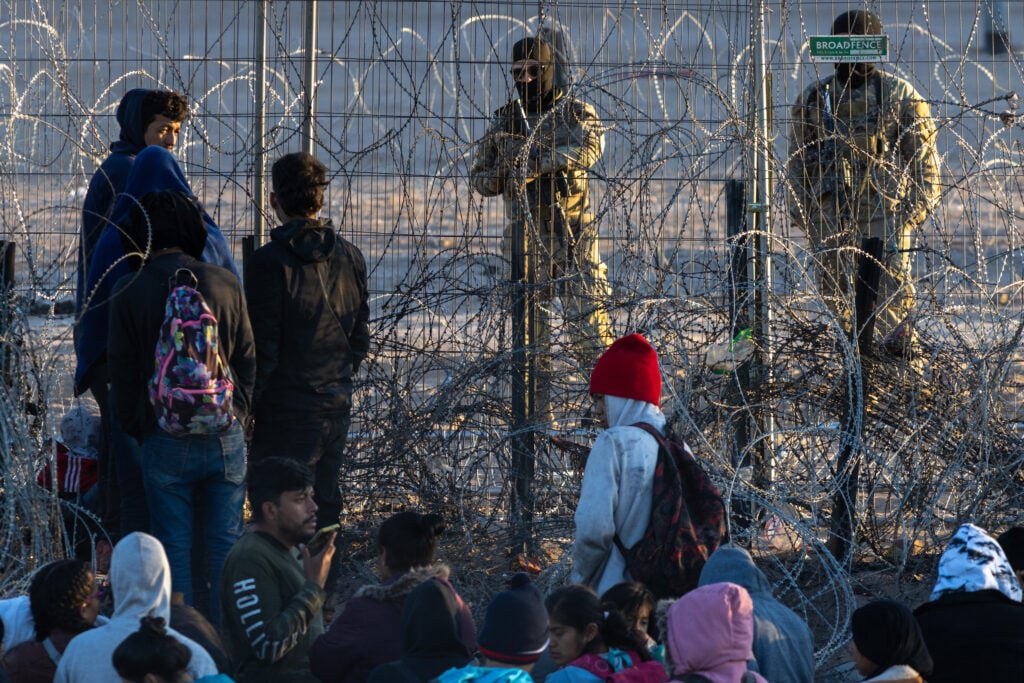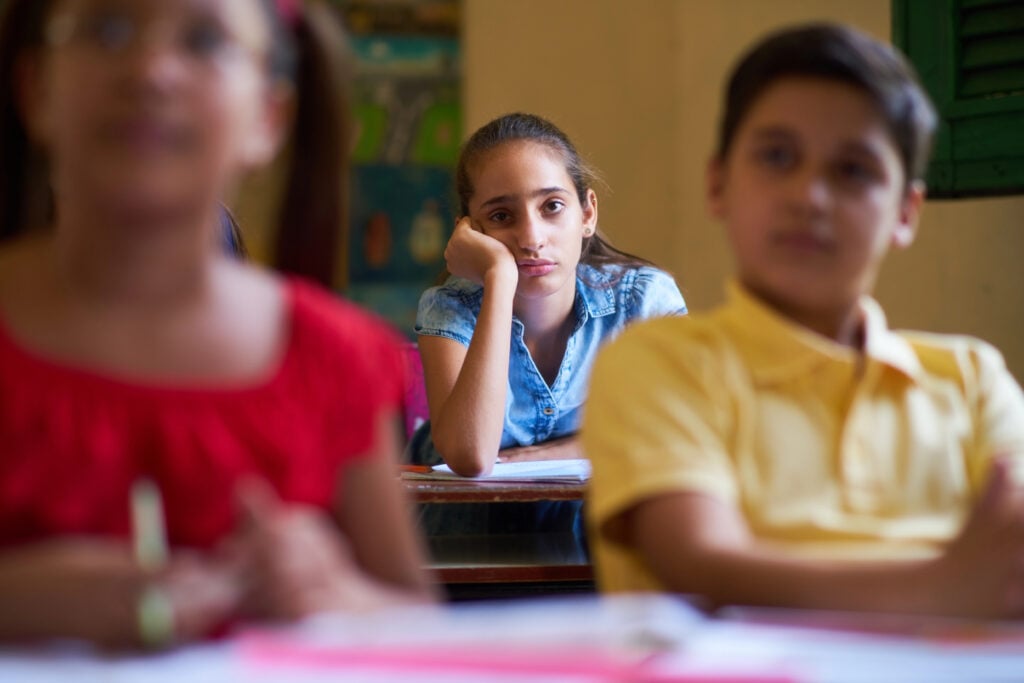
Immigration enforcement is cracking down, and it isn’t just going after individuals who have committed egregious crimes.
Videos and reports abound of children seeing their parents dragged away, and there are even cases where children have been detained, or where the actual events around a child’s situation are ambiguous or in question. That leaves kids wondering what would happen if immigration arrived at their home or school.
Teachers say their students are afraid, and that they’re dealing with trauma from what they’ve witnessed and experienced.
Child Separation Policies

Starting in 2017, the U.S. began a more hardline policy about undocumented entry into the country. While refugee laws typically allow an immigrant to apply for asylum status for a period of time after entering the country, the new policy was labeled “zero tolerance,” and one effect of it was that separating immigrant children from their parents became standard, according to Human Rights Watch.
The next step was to declare the children ‘unaccompanied,’ even as their parents had speedy trials and were returned to custody. Kids were transferred to the ORR, and reuniting them with their families was clearly not a high priority. In fact, according to the Immigration & Human Rights Law Review, as of March of this year, more than 1,300 of those children remained unaccounted for.
That’s more than a thousand kids whose locations we don’t know — are they in a facility somewhere, did they get removed from the country, or adopted without sufficient documentation? Worse?
The Current Crackdown
Now, Immigration & Customs Enforcement (ICE) has been recruiting and growing its forces, and they’ve been spotted in cities across the U.S., carrying out raids and taking people into custody.
Being in the country legally doesn’t seem to give much protection, either. For example, in Naperville, Illinois, a group of roofers was working on a home when ICE showed up. According to ABC 7, the agents knocked down ladders. They ordered the workers to jump, then, in the words of the homeowner, they were “rounded up and just taken away indiscriminately,” without any pause to ask for documentation.
All five were later shown to be documented and working legally.
No matter how confident a child is in his parents’ legal status, wondering if daddy is coming home tonight or staying in lockup until someone looks at his documents isn’t exactly great for a kid’s mental health — and really, should any child even be burdened with wondering about legal status? That’s not what we want for our babies.
The Mental Health Impact

The American Psychological Association (APA), acknowledging that immigration enforcement has amped up and now includes “authority to detain and deport people possessing green cards, visas, humanitarian parole, and other lawful statuses,” is sharing concerns about the impact on mental health.
The organization reports that the uncertainty adds to dangers both physical and mental for immigrants, regardless of legal status. (Imagine being the victim of a crime, and wondering if it’s safe to report to the police, or if reporting will result in your deportation or detainment.)
“Ultimately, these overlapping inequalities place them at heightened risk for a range of mental health conditions—such as anxiety, depression, PTSD, alcohol misuse, suicidal ideation, and increased vulnerability to sexual violence—as well as chronic physical illnesses including diabetes, liver disease, heart disease, kidney disease, and more.”
These concerns predate the current situation — the International Organization for Migration (IOM) formally requested in 2011 that the government recognize immigration status as a factor in health.
Concerns For Children At Schools
While immigrant children face all of the same fears, concerns, and risks named above, there has been a longstanding standard that immigration enforcement would not take place in schools. Schools are supposed to be safe places where kids, regardless of immigration status, income level, race, gender, disability, or virtually any other factor, can join their peers and get an education.
In January, protections for schools and churches were revoked, and the American Immigration Council reports that parents began pulling kids out of school for their protection. Even children who continued to attend school were affected by fears that a parent might be detained.
No child should sit in a classroom trying to concentrate on learning math or grammar while worrying about whether they’ll ever see their parent or other family member again.
Teachers Reporting That Students Are Traumatized
In Chicago, where there’s been a recent crackdown, teachers have greeted their students while handing out documents explaining their rights if detained. They’re also expanding remote learning options so kids can stay home if needed.
Reuters reports that local political figures are speaking up for the kids.
“Operations around schools are increasingly more and more common,” city alderman Byron Sigcho-Lopez said. “It’s caused so much fear and terror in schools.”
That’s not all. Today reports that teachers have had to take their students inside when tear gas invaded their playground. Schools are working with local officials to do everything in their power to keep kids safe, but teachers and school staff are concerned about the trauma they’re witnessing.
“Everyone’s very anxious,” said Sheena Shukla, a school social worker for Chicago Public Schools. “Can you imagine telling a 12-year-old that people are out there who might want to take their family? We can’t shield our children from these realities, so we provide them with a level of support that they can understand.”

